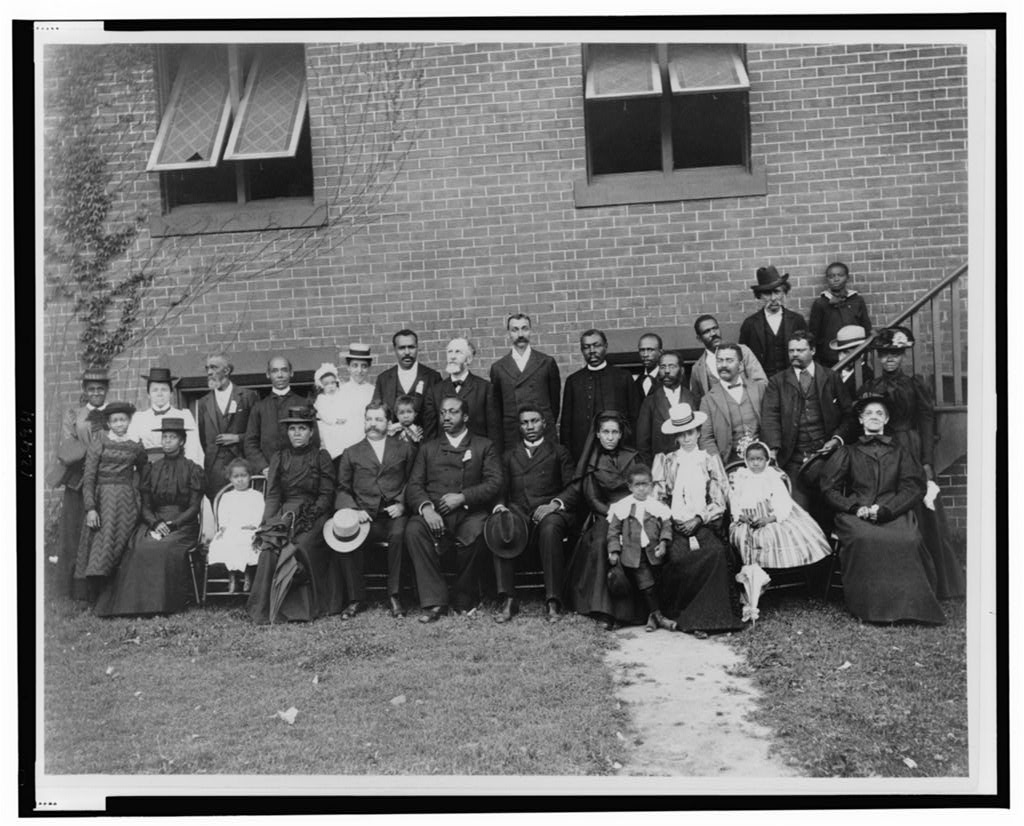American Congregationalism is a direct descendent of sixteenth- and seventeenth-century Puritanism, which began as a protest movement in England’s national Anglican Church. Congregational churches have been active in Georgia since the eighteenth century, but their numbers remain relatively low across the state.
Early History
Puritanism was founded on, among other things, a belief in God’s supreme authority as expressed in the Bible, simplicity in worship, and opposition to the supremacy of a monarch in the church. Congregational Puritans emphasized representative church government and often took the form of separatist groups that fully repudiated the Church of England.
The major source of American Congregationalism, however, resulted from a group of English and Dutch nonseparatist Congregationalists who sailed to America in 1620 to escape religious persecution in their home countries. Known as pilgrims, the Congregationalists founded a colony at Plymouth, in present-day Massachusetts, and paved the way for others to follow. In 1630 a group of Congregationalists, largely from England’s Devon, Dorset, and Somersetshire counties, landed at Plymouth and subsequently founded the colony of Dorchester in Massachusetts. These were the ancestors of immigrants who later formed the Midway settlement in Georgia, thirty miles south of Savannah.
In 1695, prior to their arrival in Georgia, the Puritans from Dorchester settled in coastal South Carolina. There they made a living cultivating rice and tobacco, and within one generation they became the largest enslavers along the Ashley River. Slavery was initially banned in the Georgia colony, but when the Georgia Trustees lifted the ban in 1752, some of these South Carolinians immigrated to coastal Georgia and settled between the Medway and Newport rivers in Liberty County, where they established the Midway and new Dorchester communities.

The Midway Congregational Church, one of the oldest Congregational churches in Georgia, was founded in Midway in 1754. The current building, which is on the National Register of Historic Places, dates from 1792 and was rebuilt after the British burned the original church in 1778, during the Revolutionary War (1775-83). Midway Congregational Church played a significant role in the early history of colonial Georgia. While the still-young colony was hesitant to support the revolutionary cause, the Georgia Puritans independently took part in the Second Continental Congress by sending Lyman Hall,a Midway resident, to represent them. Hall and Button Gwinnett, also from Midway, were two of the three Georgia signers of the Declaration of Independence.
Nineteenth Century
The primary contributions of Congregationalism to the South came from the dedicated efforts of such groups as the American Missionary Association (AMA) after the start of the Civil War (1861-65). Though nondenominational, the AMA was closely linked with Congregationalists from its founding in 1846. One of many religious organizations dedicated to rebuilding the South and addressing the enormous challenges that faced newly freedpeople, the AMA was instrumental in the establishment of churches and schools throughout the region and was especially effective in Georgia.

During the war, AMA missionaries followed the advance of the Union army and set up elementary and vocational schools for freedpeople. After the war, schools such as Atlanta University (later Clark Atlanta University) in Atlanta; Talladega College in Talladega, Alabama; Tougaloo College in Tougaloo, Mississippi; and Fisk University in Nashville, Tennessee, were established to meet the higher education needs of freedmen and-women, as well as to train ministers for the growing number of African American Congregational churches. In the late nineteenth century Congregationalists focused on the need for educational institutions in the Appalachian South. Piedmont College (now Piedmont University) in Demorest, one such school, was established in 1897 and soon formed an alliance with the Congregational tradition that continues to this day.
Congregationalist-based missionary and humanitarian efforts spurred the development of some Congregational churches in Georgia. The First Congregational Church of Atlanta formed in 1867. Over the course of the last three decades of the nineteenth century, a small number of Congregational churches were established in Georgia’s developing urban industrial areas. In 1894 a Congregational newspaper, the Advocate, was published in Atlanta. However, with its New England heritage and intellectual character, Congregationalism did not attract the large numbers of adherents in Georgia that other denominations, particularly the Baptist and Methodist denominations, did.

Twentieth and Twenty-first Centuries
As in the previous century, Congregationalism’s influence in Georgia and the South in the twentieth century was felt primarily in its social action, rather than in its numbers. The denomination’s leaders were deeply influenced by the Social Gospel movement and were strong advocates of the labor, women’s rights, and civil rights movements. In 1961 Andrew Young, previously a Congregational minister, was chosen to administer the Southern Christian Leadership Conference’s citizen education workshops, which were funded in part by the AMA. Midway’s Dorchester Academy, previously an AMA school, was chosen as the site for the program, which by 1964 had trained more than 1,000 students, who went on to register 27,993 new African American voters.

In 1957 the United Church of Christ (UCC) was formed from the merger of Congregational Christian churches and the Evangelical and Reformed Church. The UCC remains the largest ecclesiastical body of the Congregational heritage. In 1955 the National Association of Congregational Christian Churches (NACCC) was created predominantly from churches choosing not to join the UCC. The Conservative Congregational Christian Conference (CCCC), established before the UCC union, chose not to join the UCC.
Congregationalism remains a prominent national voice in Protestant progressivism. As with many mainline Protestant denominations, its membership saw a decline in the second half of the twentieth century, and the number of Congregational churches in Georgia remains very small. As of 2007 there were nineteen UCC congregations and six NACCC congregations in Georgia. The CCCC did not have a presence in the state.









